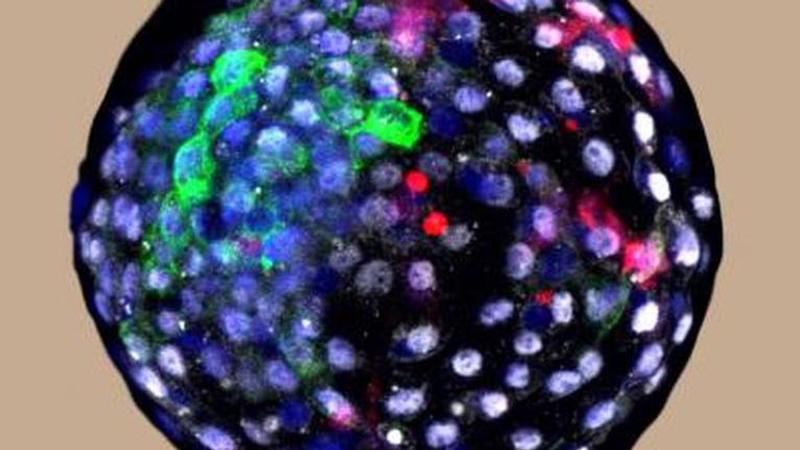Published 19:31 IST, April 17th 2021
Experts raise ethical concerns over growing human cells in monkey embryos
Research that has now sparked ethical debate involves growing human stem cells in monkey embryos. For this purpose, scientists injected human stem cells.

Research that has now sparked ethical debate involves growing human stem cells in monkey embryos. In breakthrough research, a team consisting of biologists from the US and China developed a human-monkey hybrid in laboratory settings. For this purpose, scientists injected human stem cells in embryos in Macaques monkeys and then observed them for 20 days, before all of them got destroyed on their own.
"As we are unable to conduct certain types of experiments in humans, it is essential that we have better models to more accurately study and understand human biology and disease," says senior author Juan Carlos Izpisua Belmonte, a professor in the Gene Expression Laboratory at the Salk Institute for Biological Sciences. "An important goal of experimental biology is the development of model systems that allow for the study of human diseases under in vivo conditions."
It is not the first time researchers have attempted to create what they term ‘Chimeras’. Since the 1970s, there have been experiments to combine non-human mammals, however, experiments using human cells started in 2017. For this particular experiment, scientists were led by Prof Juan Carlos Izpisua Belmonte of the Salk Institute in the US, who, in 2017, helped make the first human-pig hybrid.
The Study
Six days after the monkey embryos had been created, researchers injected each of them with 25 human cells. The cells were from an induced pluripotent cell line known as extended pluripotent stem cells, which have the potential to contribute to both embryonic and extra-embryonic tissues. After one day, human cells were detected in 132 embryos. After 10 days, 103 of the chimeric embryos were still developing. Survival soon began declining, and by day 19, only three chimeras were still alive, as reported by eurekalert.org.
A Human-Monkey blastocyst, Credits: Weizhi Ji, Kunming University of Science and Technology
'Pandora box'
While the experimenters argued that the stem cells not only survived inside monkey embryos for 20 days but also multiplied, it has now drawn flak for ethical reasons. Many from the community have called for public debate over the implications of creating part human/part nonhuman chimeras. Speaking to BBC News, Prof Julian Savulescu, director of the Oxford Uehiro Centre for Practical Ethics and co-director of the Wellcome Centre for Ethics and Humanities, University of Oxford, warned the research "opens Pandora's box to human-nonhuman chimeras". He further substantiated his point stating that while these embryos were destroyed within weeks, it was just a matter of time before human-nonhuman chimeras are successfully developed, perhaps as a source of organs for humans.
Image Credits:Weizhi Ji, Kunming University of Science and Technology
Updated 19:31 IST, April 17th 2021




